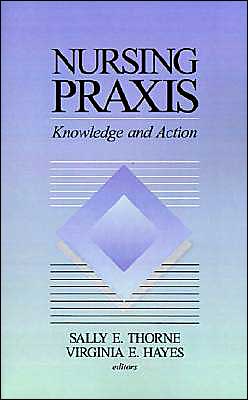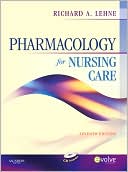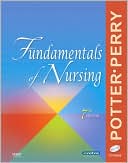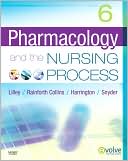Nursing Praxis
With the evolution of nursing knowledge and theory, relationships between ideas and actions often become blurred and difficult to articulate. In this ground-breaking volume, the contributors present some of the ways in which nursing scholars are confronting this problem by reflecting upon the nature of nursing knowledge and the application of theory in practice. The book is divided into three sections that address: the nature of knowledge in clinical practice; the application of theoretical...
Search in google:
With the evolution of nursing knowledge and theory, relationships between ideas and actions often become blurred and difficult to articulate. In this ground-breaking volume, the contributors present some of the ways in which nursing scholars are confronting this problem by reflecting upon the nature of nursing knowledge and the application of theory in practice. The book is divided into three sections that address: the nature of knowledge in clinical practice; the application of theoretical knowledge; and the creation of new forms and avenues of inquiry. Barbara Stevens Barnum This is a serious work on the nature of praxis in nursing, that is, on the connection between knowledge and action. It seeks to describe what can be learned from a reflective practice of nursing. The purpose of the book is to upgrade the dialogue among nurses with a serious interest in the relationships among nursing theory, practice, and research. The audience for this book should be all nurses, but it will probably only appeal to nursing faculty and advanced practice nurses. Each contributed chapter is a scholarly work on different aspects of praxis, such as what it means to know the patient, what technology means for reflective practice, care versus competency ideologies, and the use of action research. If the book has a bias, it is that parts of it come from a postmodern feminist perspective, held, however, in intelligent check. Also, it tends to favor critical social theory over classic experimental design for research. Hence, it will not surprise the reader to find topics dealing with the developing word, development of knowledge for social change, and inquiry for the common good. Never, however, does the book lose its scholarly restraint. The book is extremely well done, not only in its citations, but in the thought given to each paper by the respective authors. The contributors all have status within the profession and the ability to deliver thoughtfully on their assigned topics. This book is not for the casual reader, but for the scholarly nurse it will be provocative and an interesting read. Nursing scholars too often forget that ultimately, our knowledge comes from, and returns to inform, practices. This book is a wonderful corrective on that point.
AcknowledgmentsIntroduction: Praxis in the Context of Nursing's Developing Inquiry1The Nature of the Knowledge Used in Nursing Practice32Knowing the Patient?233Discovering Knowledge in a Practice Setting394Searching for Family Nursing Practice Knowledge545Knowing and Forgetting: The Challenge of Technology for a Reflexive Practice Science of Nursing696Enlightenment in Nursing897Implications of the Caring/Competence Dichotomy1058Thinking Nursing1259Multiple Paradigms for Nursing: Postmodern Feminisms14010Consciousness-Raising as a Feminist Nursing Action: Promise and Practice, Present and Future15711The Revolution Never Ends: Challenges of Praxis for Nursing Education18012Foundational Thought in the Development of Knowledge for Social Change20313Nursing Inquiry for the Common Good21914Health Knowledge and the Praxis of Otherness: The Case in the Developing World23715Action Research as Authentic Methodology for the Study of Nursing25416A Feminist Poststructuralist Orientation to Nursing Praxis267Name Index285Subject Index292About the Authors309
\ From The CriticsReviewer: Barbara Stevens Barnum, RN, PhD, FAAN(Columbia University School of Nursing)\ Description: This is a serious work on the nature of praxis in nursing, that is, on the connection between knowledge and action. It seeks to describe what can be learned from a reflective practice of nursing. \ Purpose: The purpose of the book is to upgrade the dialogue among nurses with a serious interest in the relationships among nursing theory, practice, and research.\ Audience: The audience for this book should be all nurses, but it will probably only appeal to nursing faculty and advanced practice nurses.\ Features: Each contributed chapter is a scholarly work on different aspects of praxis, such as what it means to know the patient, what technology means for reflective practice, care versus competency ideologies, and the use of action research. If the book has a bias, it is that parts of it come from a postmodern feminist perspective, held, however, in intelligent check. Also, it tends to favor critical social theory over classic experimental design for research. Hence, it will not surprise the reader to find topics dealing with the developing word, development of knowledge for social change, and inquiry for the common good. Never, however, does the book lose its scholarly restraint.\ Assessment: The book is extremely well done, not only in its citations, but in the thought given to each paper by the respective authors. The contributors all have status within the profession and the ability to deliver thoughtfully on their assigned topics. This book is not for the casual reader, but for the scholarly nurse it will be provocative and an interesting read. Nursing scholars too often forget that ultimately, our knowledge comes from, and returns to inform, practices. This book is a wonderful corrective on that point.\ \ \ \ \ Barbara Stevens BarnumThis is a serious work on the nature of praxis in nursing, that is, on the connection between knowledge and action. It seeks to describe what can be learned from a reflective practice of nursing. The purpose of the book is to upgrade the dialogue among nurses with a serious interest in the relationships among nursing theory, practice, and research. The audience for this book should be all nurses, but it will probably only appeal to nursing faculty and advanced practice nurses. Each contributed chapter is a scholarly work on different aspects of praxis, such as what it means to know the patient, what technology means for reflective practice, care versus competency ideologies, and the use of action research. If the book has a bias, it is that parts of it come from a postmodern feminist perspective, held, however, in intelligent check. Also, it tends to favor critical social theory over classic experimental design for research. Hence, it will not surprise the reader to find topics dealing with the developing word, development of knowledge for social change, and inquiry for the common good. Never, however, does the book lose its scholarly restraint. The book is extremely well done, not only in its citations, but in the thought given to each paper by the respective authors. The contributors all have status within the profession and the ability to deliver thoughtfully on their assigned topics. This book is not for the casual reader, but for the scholarly nurse it will be provocative and an interesting read. Nursing scholars too often forget that ultimately, our knowledge comes from, and returns to inform, practices. This book is a wonderful corrective on that point.\ \ \ 3 Stars from Doody\ \








